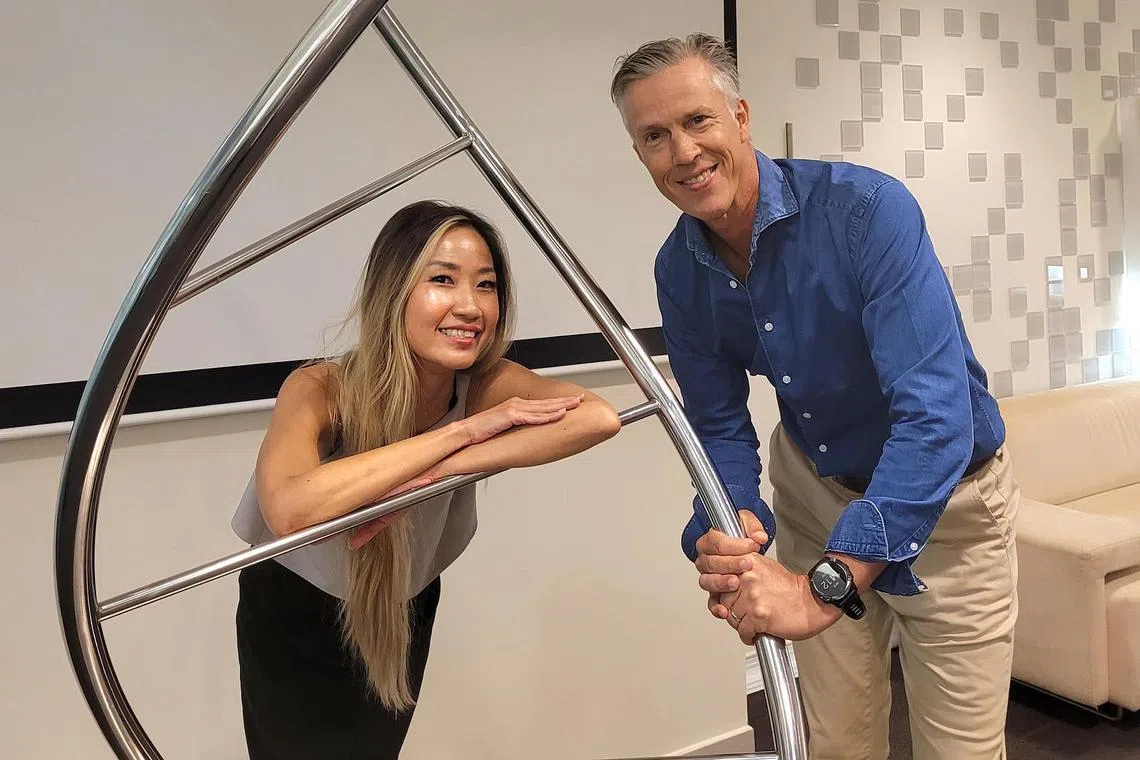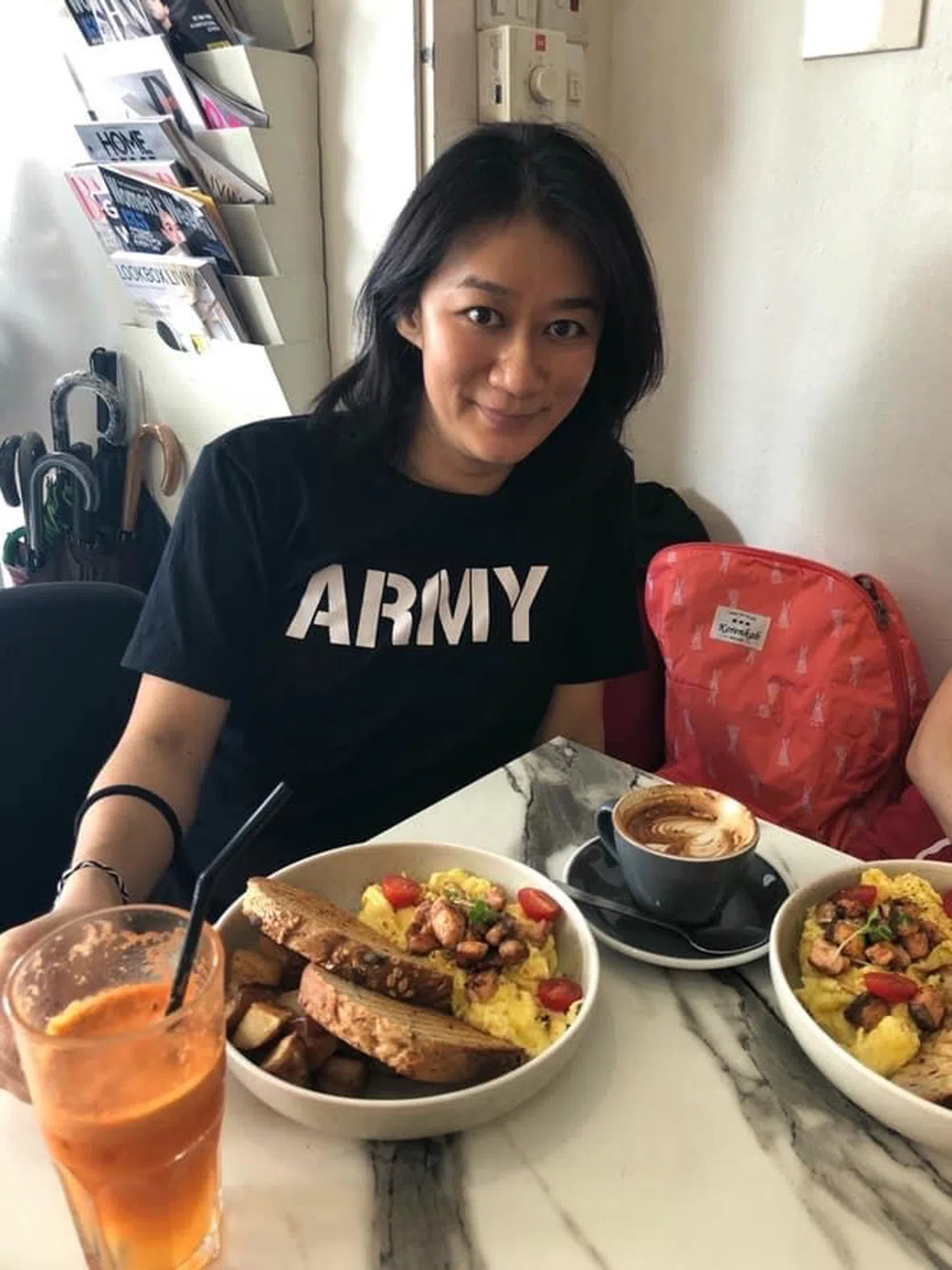New study hopes to provide Singapore women with personalised breast screening
Sign up now: Get ST's newsletters delivered to your inbox

Dr Li Jingmei and Associate Professor Mikael Hartman. The Breathe study aims to develop a personalised breast screening programme for women in Singapore.
PHOTO: COURTESY OF LI JINGMEI
Follow topic:
SINGAPORE – While guidelines on breast cancer screening in Singapore are currently based on age, a study being conducted hopes to make the case for a risk-based approach to screening for the condition.
Female breast cancer is the most common cancer here, affecting more than 2,000 women each year, with over 400 dying from the disease annually, according to figures from the Singapore Cancer Registry.
Under current breast cancer screening guidelines, women aged between 50 and 69 are recommended to get a mammogram every two years, while women between the ages of 40 and 49 should get a mammogram every year, if advised to do so by a doctor.
However, the risk of getting breast cancer is different for everyone, with about one in six women suffering from breast cancer under the age of 45, said Dr Li Jingmei, group leader at the Laboratory of Women’s Health & Genetics at the Genome Institute of Singapore.
Dr Li is also the scientific co-principal investigator for the BREAst screening Tailored for HEr (Breathe) programme, which aims to evaluate the feasibility and cost-effectiveness of a risk-based approach to screening for breast cancer.
A collaborative effort between various healthcare institutions, Breathe is supported by funding from registered charity JurongHealth Fund and Precision Health Research, Singapore (Precise), a business unit under the Consortium for Clinical Research and Innovation, Singapore.
Precise – set up in 2021 to facilitate the use of technology to customise healthcare – will work with doctors and public health experts to create the “optimal patient journey” to reduce the impact of breast cancer on the lives of people here, said its chief medical officer, Professor Tai E. Shyong.
Dr Li said: “A risk-based approach treats every woman as an individual, taking not just age into account but also including personalised information about genetics, lifestyle and reproductive factors unique to each woman.
“On an individual level, a 35-year-old woman may be at the same breast cancer risk level as a 50-year-old who is recommended to attend breast cancer screening.”
The study, which recruits women between the ages of 35 and 59, is currently actively recruiting at various locations, including the Ng Teng Fong General Hospital and Jurong Medical Centre, as well as Bukit Batok and Choa Chu Kang polyclinics.
Participants who join the study are asked to complete a questionnaire regarding their lifestyle and other potential breast cancer risk factors, and will have to get a cheek swab to collect their genetic information.
Those aged 40 and above will be encouraged to undergo a mammogram screening.
The study team will meet the participant about three to six months after she signs up, to provide her with the risk report.
“We hope to see women understand their risk and act on it, so that we can provide them with the best possible breast health,” said Associate Professor Mikael Hartman, clinical co-principal investigator of the Breathe programme.
Prof Hartman, who is also senior consultant of breast surgery at the National University Hospital, said the study, which hopes to recruit 5,000 women here, has signed up almost 3,000 women as at October.
Four breast cancer cases have been diagnosed so far among the participants of the Breathe programme, all of whom were correctly predicted to be at high risk.
Among them was 50-year-old Juvina Lee, who was found to have a lump in her right breast after signing up for the Breathe programme in March.

Ms Juvina Lee, a 50-year-old pre-school principal and participant in the Breast screening Tailored for Her (Breathe) programme.
PHOTO: COURTESY OF JUVINA LEE
She discovered she had a family history of breast cancer only after running into her aunt – who underwent a mastectomy a few years ago – while waiting to go through an enhanced scan of her breasts at a clinic.
“When she shared that with me, I was in total shock,” said the pre-school centre principal, who underwent a lumpectomy and radiotherapy earlier this year.
Doctors told Ms Lee – who told The Straits Times she felt fortunate to have discovered her condition early – that she should be clear if she does not find any lumps over the next two years.
Dr Li compared personalised screening programmes to how people use data from fitness apps and trackers to gauge their health.
“What we hope to achieve with Breathe is to translate what we have learnt about breast cancer in the past few decades into individualised information that will benefit every woman,” she said.

